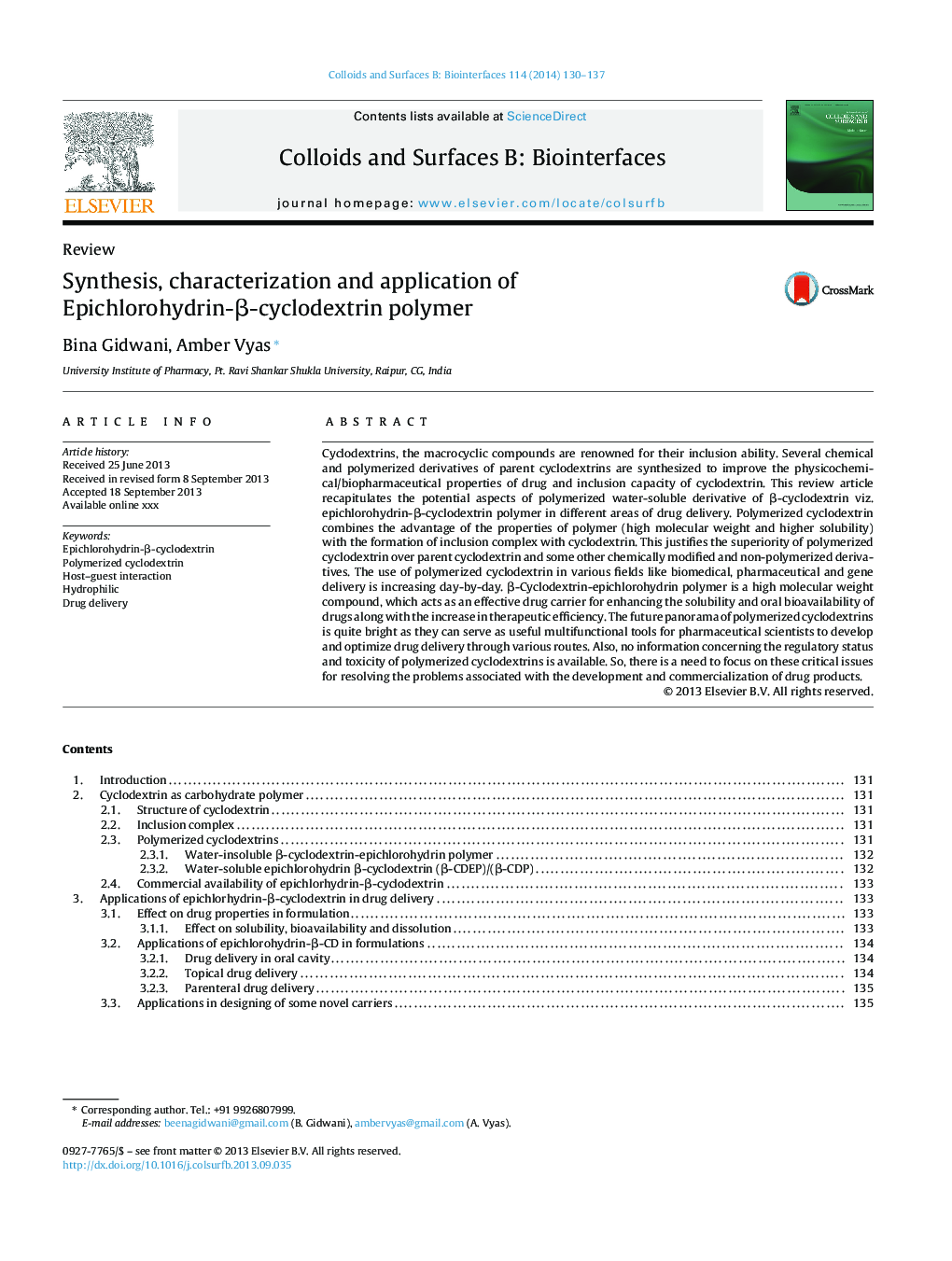| Article ID | Journal | Published Year | Pages | File Type |
|---|---|---|---|---|
| 6983497 | Colloids and Surfaces B: Biointerfaces | 2014 | 8 Pages |
Abstract
Cyclodextrins, the macrocyclic compounds are renowned for their inclusion ability. Several chemical and polymerized derivatives of parent cyclodextrins are synthesized to improve the physicochemical/biopharmaceutical properties of drug and inclusion capacity of cyclodextrin. This review article recapitulates the potential aspects of polymerized water-soluble derivative of β-cyclodextrin viz. epichlorohydrin-β-cyclodextrin polymer in different areas of drug delivery. Polymerized cyclodextrin combines the advantage of the properties of polymer (high molecular weight and higher solubility) with the formation of inclusion complex with cyclodextrin. This justifies the superiority of polymerized cyclodextrin over parent cyclodextrin and some other chemically modified and non-polymerized derivatives. The use of polymerized cyclodextrin in various fields like biomedical, pharmaceutical and gene delivery is increasing day-by-day. β-Cyclodextrin-epichlorohydrin polymer is a high molecular weight compound, which acts as an effective drug carrier for enhancing the solubility and oral bioavailability of drugs along with the increase in therapeutic efficiency. The future panorama of polymerized cyclodextrins is quite bright as they can serve as useful multifunctional tools for pharmaceutical scientists to develop and optimize drug delivery through various routes. Also, no information concerning the regulatory status and toxicity of polymerized cyclodextrins is available. So, there is a need to focus on these critical issues for resolving the problems associated with the development and commercialization of drug products.
Related Topics
Physical Sciences and Engineering
Chemical Engineering
Colloid and Surface Chemistry
Authors
Bina Gidwani, Amber Vyas,
